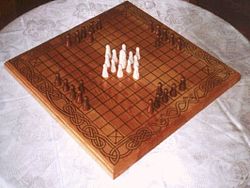Today we celebrate the release of our contributor Erastes' latest release, FROST FAIR. Enjoy!
***

Gideon Frost is willing to do whatever it takes to earn enough money to save the printing shop that was left to him by his father. But when faced with the prospect of having to engage in acts society deems unnatural and the law declares punishable by death, he realized there are limits as to how far he'll go. Then he meets the privileged and handsome Joshua Redfern, the one man who tempts Gideon to break his own rules.
Joshua Redfern has no title or important relations, but his independent fortune allows him a life that is more than comfortable. And more importantly, it enables him to offer assistance to the unfortunate but beautiful Gideon just when the man needs it most. Joshua realizes his interest in Gideon is far more than charitable, but is the man similarly attracted or merely indebted?
When the Thames freezes over and London hosts the great Frost Fair of 1814, trouble and necessity bring Gideon and Joshua together. But just as ice is destined to eventually crack, will the circumstances break these two men as they learn that life isn't always fair?
***

Once upon a time, before all this nasty global warming, the River Thames freezing over was a pretty regular occurrence. When William the Conqueror was still on the throne, it wasn't unusual for the Thames to be solid ice for weeks at a time.
In 1564 the first Frost Fair was held-although there's not that much recorder evidence of it, but we can rely on the Londoner's sense of free theatre, they'd have flocked to anything new. There were probably street vendors galore, cock fights, bear baiting and the like.
Why did the Thames freeze then and not now?
It was all to do with the bridges. Once, all the bridges had small arches, so when the ice formed in large enough clumps it couldn't flow easily under the bridges, so it piled up and the water behind it froze. Once the bridges were replaced by ones with larger spans this ceased to be a regular occurrence. The Thames did freeze occasionally after the Regency period but there was never to be a giant Frost Fair again--the last one was in 1814, and it's around this week-long event that my book FROST FAIR concerns itself.
How is this an Unusual Historical?It's a break from a "traditional" Regency romance (and not only because it's a gay romance!) in that there's no aristocracy, no balls, no pump rooms, nothing like that. The main protagonist, Gideon Frost, is an impoverished printer and engraver eking out an existence and not making any profit. Sometimes he simply runs out of money completely and finds himself forced to frequent the sites of male prostitution (Lad Lane, Cock Lane and St Paul's Churchyard, which were all notorious) to earn a few shillings to make ends meet. (Pardon the pun!)
He falls in love--hopelessly he feels--with a customer, Joshua Redfern, a wealthy man who comes to his shop one day, little knowing that Redfern shares his predilections and is as in love with Gideon as Gideon is with him. However, this being 1814, it's not exactly something one can bring up in conversation! Redfern has already lost one lover to the hangman, and it's not a risk he wants to take again.
Stir in a returning character from
Hard & Fast the devilish Finbarr Thouless, a cockney shop-assistant and a dastardly plot and you have
Frost Fair.
It's at the top of the bestseller's list at Linden Bay Romance, (of which, out of the Ten Ten, four are gay historical romances) which makes me happy!
Would you like to share an excerpt? If so, set it up for us.Yes! Redfern's just met Gideon for the first time.

Thouless raised one darkly handsome eyebrow. "Well, then," he said with the exquisite patience and subtlety of a rhinoceros, "perhaps Mr. Frost might be persuaded to do a commission. Were you not saying that you were thinking of getting some pictures done? Of the house?"
Redfern could feel himself coloring, as for the third time, and, convinced he looked like some cork-brained nincompoop, all he could find to say was, "Yes. Yes, I was."
Somehow, he'd snapped himself out of his shock, and in moments, the young man--Gideon Frost--had written down Redfern's name and address in, Redfern could not help but notice, an elegant hand, and had promised to call within a very few days. He'd explained that his assistant was unwell but he had every hope that his recovery was imminent. Redfern left the shop with a spring in his step he hadn't had for many a month and found it difficult not to smirk. Thouless--damn his questing eyes--commented favorably on Frost's talents all the way back to Fleet Street.
To cover up his interest in the young man, Redfern said, "Are you trying to shock me, Finn? To hear you speak, I'd think you were smitten by young Frost."
Finbarr hailed a hackney, and as it trundled along the street toward them, he said, "I appreciate art, Joshua. That young man creates it, and his Creator has made it in him. If you tell me you did not see the beauty in him, I will call you a bowyer and as such I will never believe anything you say again."
Redfern had grunted something, enough to placate his friend and make him change the subject onto the ball of that night, and that had been the end of the matter between them. When Frost came to sketch the house, there was no archly sarcastic wag to confuse matters. But it did no good. For all that Redfern wanted to be the charmer, the urbane friend to Frost that Thouless was to him, he found it impossible. He was not so much tongue-tied, but seemingly tongue-
less in the young man's presence and all he had been able to do was give the engraver
carte blanche to sketch where and how he liked. He sounded curt and gruff even to his own ears, and he knew that it was self-protection; better to appear an arrogant nouveau-riche than to give any hint of his true feelings. For from the moment he'd seen Frost again he knew that he was violently, passionately attracted to the young man, in a way that he hadn't felt for many years.
He left Frost to sketch, and forced himself not to trouble his work. He stayed in his library, giving orders to the staff that he had left the house and that he would call on the engraver presently. He sat and wrestled with the burgeoning attraction for the man he'd seen twice. What good would it do to moon after the young man? What good had it ever done? He'd learned harsh lessons in his life, that his predilections had brought nothing but danger and misery to all concerned. He'd long been of the opinion that it was better to live like a monk than to put one more man at risk.
So what, he wondered, as he stood outside Frost's shop on a freezing day, had led his footsteps back here? There was nothing in their business that could not have been done by servants or by correspondence but here he was. Before he gave it another thought, and talked himself out of it, he pushed open the door, and suddenly, as he saw the engraver stand with a welcoming smile on his face, he was warm.
 What's next for you, Erastes?
What's next for you, Erastes?A very exciting book release in April 2009. An imprint of Perseus Books--Running Press--is releasing a line of M/M Romance as mainstream romance for the first time ever. They'll be available in the women's romance section of books and marketed specifically at women with "proper romance covers". My English Civil War romance
TRANSGRESSIONS and Alex Beecroft's Age of Sail adventure,
FALSE COLORS are to be the pathfinder releases and they are lining up more releases to follow.
Sadly I can't show you the covers yet, but I'll keep you all posted! I hope you give FROST FAIR a try and enjoy it if you do.
***
Thanks so much to Erastes for stopping by today. We're giving away a copy of
FROST FAIR to a random commenter when we return from the holiday break on December 28. Leave a comment or question for your chance to win. Good luck!
 Carol A. Spradling
Carol A. Spradling
 Other activities that drew a crowd were militia musters, court days, and public executions. Talk about being desperate for entertainment. To fill the lulls during these occasions, the townspeople would conduct side entertainment in the way of wrestling contests, horse races, and a rather interesting activity where participants would bludgeon each other with a stout stick. Thank goodness for the war. Apparently the Continental Congress felt it best to reserve energy for a more unified cause.
Other activities that drew a crowd were militia musters, court days, and public executions. Talk about being desperate for entertainment. To fill the lulls during these occasions, the townspeople would conduct side entertainment in the way of wrestling contests, horse races, and a rather interesting activity where participants would bludgeon each other with a stout stick. Thank goodness for the war. Apparently the Continental Congress felt it best to reserve energy for a more unified cause. The mentioned activities were ideal for grownups, but children were technologically disadvantaged compared to their modern counterparts. While adults may have been forced to substitute chocolate or coffee for their tea, it brewed on in little girls' imaginations. Pretend tea parties ensured hours of fun along with tops, marbles, dolls, puzzles, balls, and Bilbo catchers.
The mentioned activities were ideal for grownups, but children were technologically disadvantaged compared to their modern counterparts. While adults may have been forced to substitute chocolate or coffee for their tea, it brewed on in little girls' imaginations. Pretend tea parties ensured hours of fun along with tops, marbles, dolls, puzzles, balls, and Bilbo catchers. 

 In years following the American Civil War, Peck and Snyder, a sporting goods company based in New York City, came up with a way to further market the game--and their business. By printing "trade cards" with famous players or teams on the face with advertisements on the back. These cards were not sold, but handed out on the streets, much like today's fliers.
In years following the American Civil War, Peck and Snyder, a sporting goods company based in New York City, came up with a way to further market the game--and their business. By printing "trade cards" with famous players or teams on the face with advertisements on the back. These cards were not sold, but handed out on the streets, much like today's fliers.

























